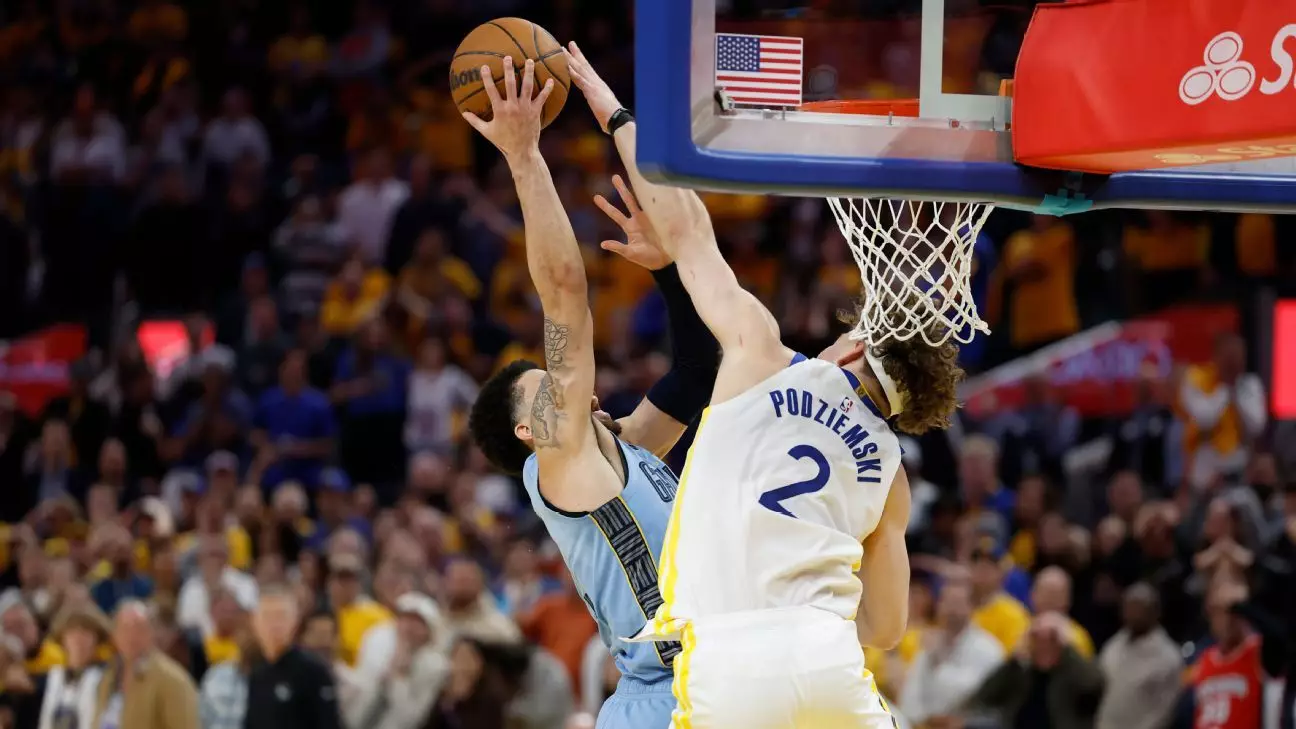In sports, pivotal moments can often boil down to a single call from an official, a split-second decision that can alter the course of a game. This truth was starkly illuminated in the recent play-in game involving the Golden State Warriors and the Memphis Grizzlies. The NBA’s Last Two Minute Report, a mechanism designed to maintain officiating accountability, revealed that the referees made at least two crucial mistakes in the dying moments of a tightly contested match. The implications of such errors run deeper than mere statistics; they shape narratives, influence player morale, and can instigate strategic shifts in postseason play.
Questionable Calls, Consequential Effects
Take, for instance, the incorrect call against Warriors rookie Brandin Podziemski. When he executed what many fans and analysts perceived as a clean block on Scotty Pippen Jr., the officials controversially ruled it a personal foul. This decision allowed Pippen to reduce the Warriors’ lead by converting one of his two free throws. At that moment, a seemingly innocuous foul transformed into a significant turning point. How many games throughout history teeter on such razor-thin margins, where a judgment call can dramatically sway the outcome?
As if that weren’t enough, the criticism didn’t stop there. Moments prior to the conclusion of the game, another controversial incident occurred involving Stephen Curry and Ja Morant. The officials mishandled a play that should have granted the Grizzlies possession, further muddying the outcome of the match. While the NBA does strive for transparency through its reports, these mistakes serve as a reminder that even the most experienced officiating crews can falter under pressure.
Game Impact Beyond the Court
The consequences of officiating blunders stretch far beyond the confines of a single game. For the Warriors, their win secured them the seventh seed in the playoffs, setting up an exciting first-round duel against the Houston Rockets. Meanwhile, the Grizzlies were left wrestling with the implications of a loss that could haunt them as they vie for the final playoff spot. The psychological toll on players, coaches, and fans alike can be monumental, creating a climate of distrust and frustration aimed at the officiating crew. This thin line between fairness and controversy not only affects the current league but echoes through the annals of sports history, influencing how teams prepare and strategize for future matchups.
Future Implications for NBA Officiating
An essential aspect of any sport is its integrity, something that can be jeopardized when refereeing decisions become contentious. The NBA’s transparency through mechanisms like the Last Two Minute Report is a step in the right direction but raises questions about how the league will address officiating effectiveness moving forward. Will there be additional training for referees in high-stakes situations? Will they explore technological aids to minimize human error in calls?
As fans and analysts dissect these recent events, the conversation inevitably circles back to the role of officials as the unsung (or sometimes sung) heroes and villains of the game. Their decisions can solidify legacies or, conversely, lead to long-term resentment from players and teams. Ultimately, the effectiveness of a game’s officiating can dictate not just victories and defeats, but also the very fabric of competition itself—a realization both exciting and sobering for all who revel in the drama of sport.

